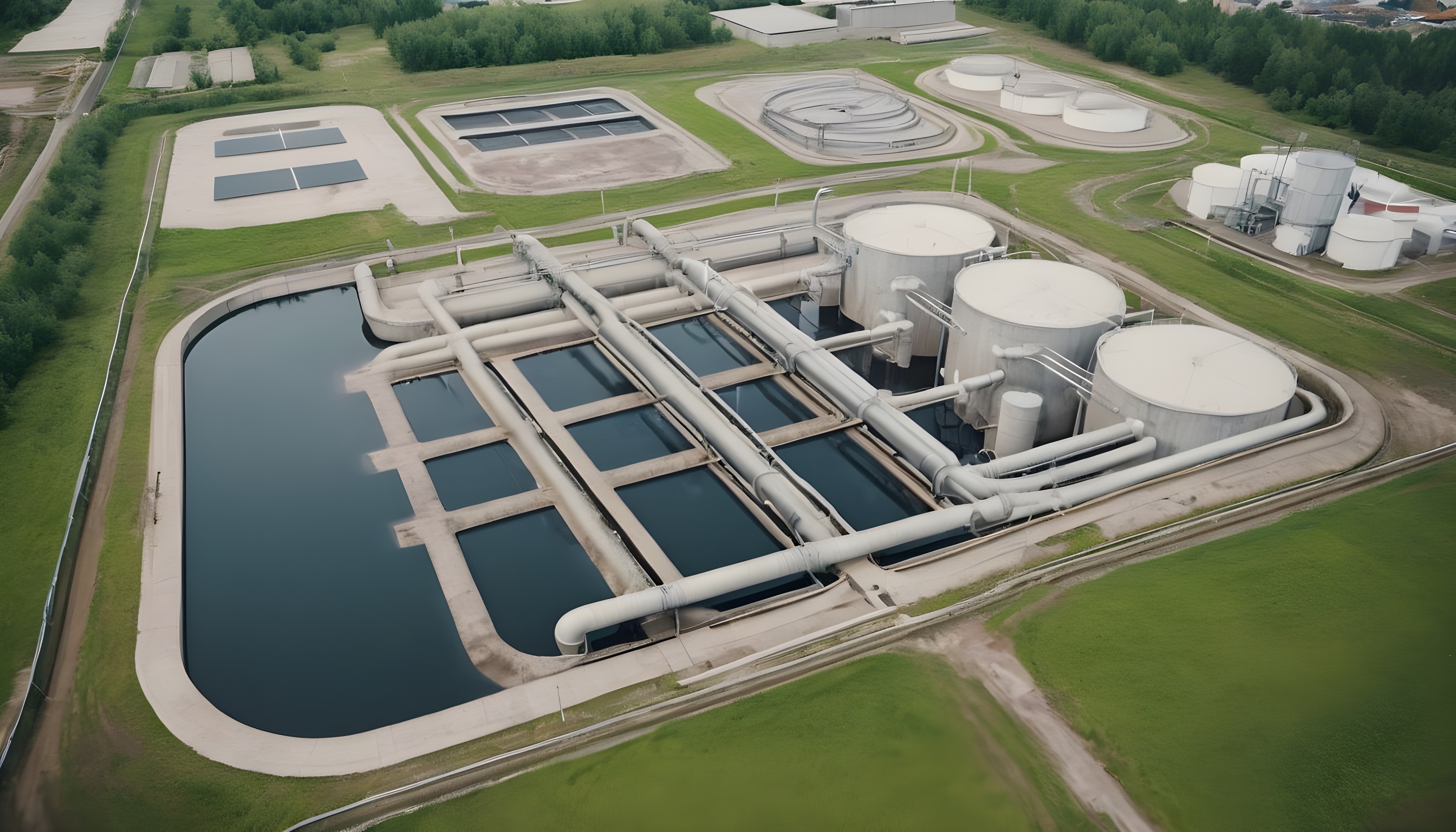December 05, 2023

In the realm of wastewater management, sewage treatment plants play a pivotal role in safeguarding public health and preserving environmental integrity. Traditionally, sewage treatment plants have relied on conventional methods, including the utilization of membrane bioreactor (MBR) systems. However, POLARIS is spearheading a transformative approach to sewage water treatment, leveraging the cutting-edge technology of ceramic flat sheet membranes to surpass the limitations of conventional MBR-systems.
At the heart of POLARIS's groundbreaking approach lies the adoption of ceramic flat sheet membranes, which offer a myriad of advantages over traditional MBR-systems. These advantages not only elevate the efficacy of sewage water treatment but also pave the way for a more sustainable and efficient solution.
1. Enhanced Filtration Efficiency: Ceramic flat sheet membranes boast superior filtration efficiency, serving as a highly effective barrier against contaminants present in sewage water. This translates into a cleaner water output with significantly fewer impurities, ensuring enhanced water quality and safety.
2. Unparalleled Durability: In stark contrast to conventional MBR-systems, ceramic flat sheet membranes exhibit exceptional durability and longevity. Their inherent resistance to chemical and biological degradation mitigates the risks of fouling and degradation over time, thereby extending service life and reducing maintenance costs.
3. Mitigation of Fouling: The smoother surface texture and pore structure of ceramic flat sheet membranes minimize the occurrence of fouling and clogging, ensuring improved operational reliability and reduced downtime for cleaning and maintenance compared to MBR-systems.
4. High Temperature Tolerance: One of the standout features of ceramic membranes is their ability to withstand elevated operating temperatures, surpassing the capabilities of polymer-based membranes utilized in traditional MBR-systems. This renders ceramic membranes ideal for applications involving hot water treatment processes, where high temperatures are encountered.
5. Exceptional Chemical Resistance: Ceramic flat sheet membranes exhibit remarkable chemical resistance, rendering them suitable for a diverse range of water treatment applications. Whether facing aggressive chemicals or challenging water compositions, ceramic membranes remain steadfast, offering unparalleled versatility and adaptability in system design and operation.
6. Sustainability at its Core: In alignment with POLARIS's commitment to environmental stewardship, ceramic flat sheet membranes present a more sustainable solution for sewage water treatment. Their extended lifespan, reduced energy consumption, and minimal maintenance requirements contribute to overall environmental sustainability and operational efficiency, setting a new standard for eco-friendly wastewater management practices.
In conclusion, POLARIS's innovative utilization of ceramic flat sheet membranes heralds a new era in sewage water treatment. By leveraging the superior properties of ceramic technology, POLARIS not only ensures the delivery of cleaner water but also establishes a foundation for long-term reliability, efficiency, and sustainability in sewage treatment plants. As the industry continues to evolve, POLARIS remains at the forefront, reshaping the landscape of wastewater management with ingenuity and excellence.

